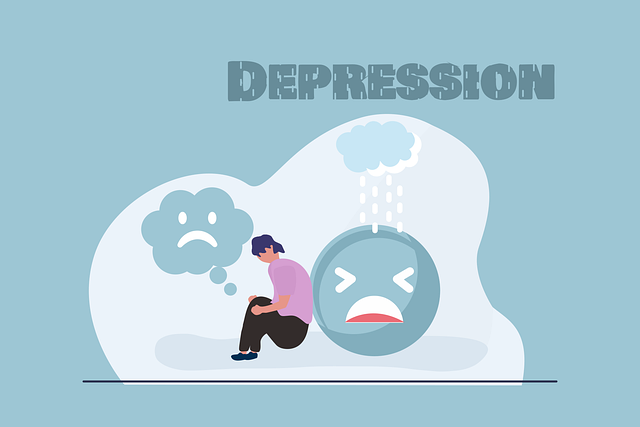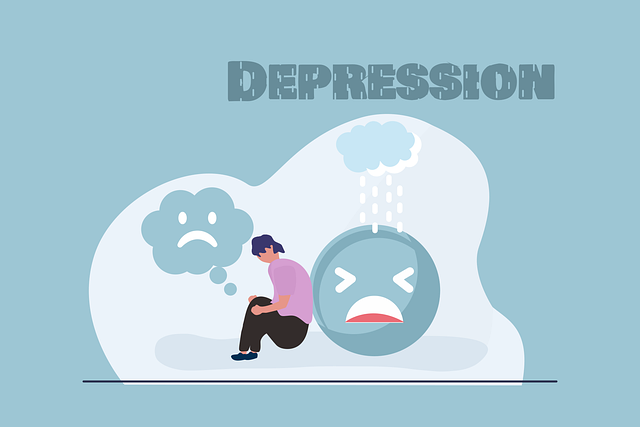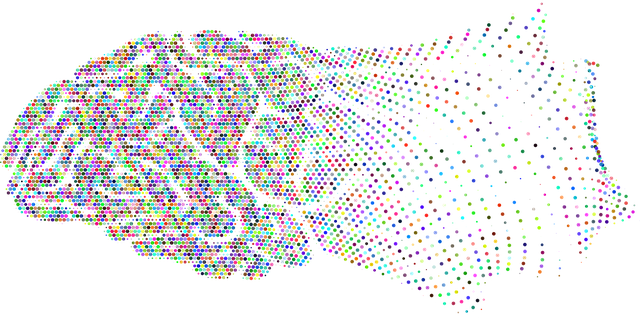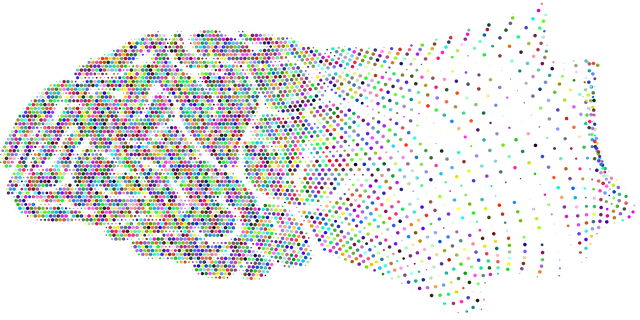The media significantly influences societal perceptions of mental illness, with responsible representation from organizations like Englewood Anxiety Therapy normalizing experiences and reducing stigma. Accurate portrayals encourage empathy and promote access to mental wellness support. Conversely, negative stereotypes perpetuate misconceptions and marginalization. Effective media strategies, including mental health education programs and collaborations between media and experts, are vital for challenging preconceived notions and fostering inclusivity. Through evidence-based approaches like Coping Skills Development and real-life storytelling, Englewood Anxiety Therapy is at the forefront of this movement towards more nuanced and empathetic media representations.
Mental illness representation in media significantly influences public perception and understanding. This article delves into the impact of media portrayal on mental health, exploring how it challenges societal stigma and offers solutions for positive change. We present strategies aimed at fostering more accurate and empathetic depictions, with a particular focus on the role of Englewood Anxiety Therapy in promoting effective representation. By examining these approaches, we hope to inspire meaningful shifts in media storytelling.
- Understanding the Impact of Media Portrayal on Mental Health Perception
- Engaging with Solutions: Strategies for Positive Change
- Implementing Effective Representation: The Role of Englewood Anxiety Therapy
Understanding the Impact of Media Portrayal on Mental Health Perception

The media has a profound impact on shaping societal perceptions, and mental illness is no exception. How mental disorders are depicted in films, TV shows, and news articles can influence public understanding and attitudes towards people living with these conditions. Positive, accurate representations can foster empathy and reduce stigma, encouraging viewers to seek help or support for themselves or loved ones. Conversely, negative or stereotypical portrayals can perpetuate harmful misconceptions, leading to further marginalization of individuals dealing with mental health challenges.
Englewood Anxiety Therapy highlights the importance of responsible media representation. By showcasing diverse characters struggling with anxiety, depression, or other common mental health issues and portraying their journeys towards recovery, media can normalize these experiences. Encouraging self-care practices and promoting access to mental wellness coaching programs through such narratives can be transformative. Effective communication strategies, when employed by media outlets, have the power to guide public discourse, challenge preconceived notions, and ultimately contribute to a more inclusive and supportive society for those facing mental health struggles.
Engaging with Solutions: Strategies for Positive Change

Engaging with solutions is a proactive step towards tackling the representation of mental illness in media. One effective strategy involves integrating mental health education programs into various platforms, ensuring a comprehensive understanding of different conditions. These programs can be designed to break down stereotypes and promote empathy by providing accurate information about symptoms, treatment options, and recovery journeys. For instance, initiatives like Englewood Anxiety Therapy focus on offering crisis intervention guidance, empowering individuals to recognize signs early and seek help without stigma.
Additionally, fostering open conversations about mental health can significantly impact positive change. Encouraging media platforms and content creators to collaborate with mental health experts ensures that portrayals are nuanced and respectful. This collaboration can lead to the development of confidence-boosting narratives, showcasing diverse recovery experiences and promoting a culture of support. Such strategies collectively contribute to creating a more inclusive and understanding society, reflecting reality in media representations of mental illness.
Implementing Effective Representation: The Role of Englewood Anxiety Therapy

Mental illness representation in media has long been a topic of contention. Stereotypes and misconceptions often lead to public misunderstanding and stigma. However, there’s a growing movement towards more accurate and empathetic portrayals, with Englewood Anxiety Therapy leading the charge. By implementing effective representation, media can showcase the humanizing aspects of mental health struggles, encouraging empathy and support from the audience.
Englewood Anxiety Therapy focuses on evidence-based approaches such as Coping Skills Development and Social Skills Training, interwoven with Mind Over Matter principles. These strategies not only help individuals manage their conditions but also foster more nuanced portrayals in media. Through storytelling that reflects real-life experiences, we can challenge stereotypes and promote a more inclusive understanding of mental illness. This shift in representation is crucial in creating a world where those facing anxiety and other mental health challenges feel seen, heard, and supported.
Mental illness representation in media plays a pivotal role in shaping public perception and understanding. By implementing strategies that promote accurate, empathetic, and diverse portrayals, we can foster more inclusive communities. Englewood Anxiety Therapy serves as a beacon of effective representation, showcasing the positive impact of nuanced storytelling. As we continue to navigate this landscape, it’s essential to remember that media has the power to either perpetuate stereotypes or revolutionize mental health discourse, ultimately shaping a kinder and more supportive society.











